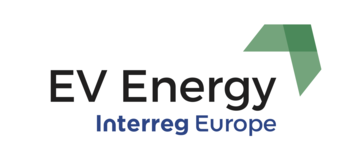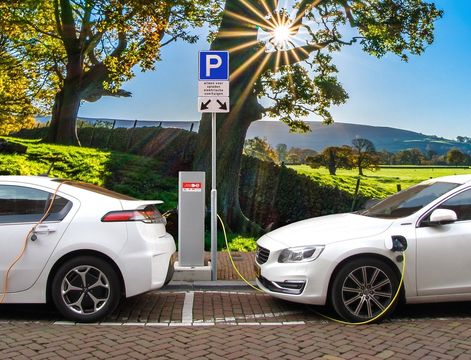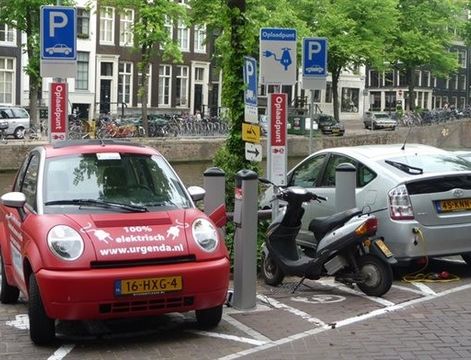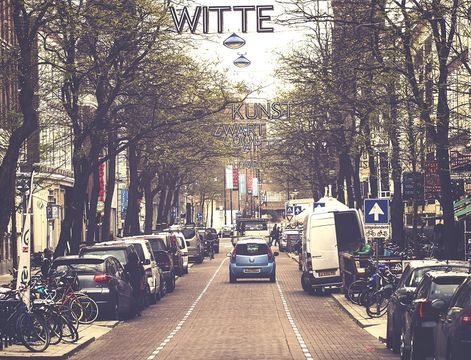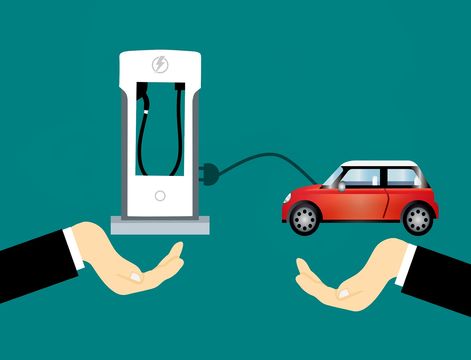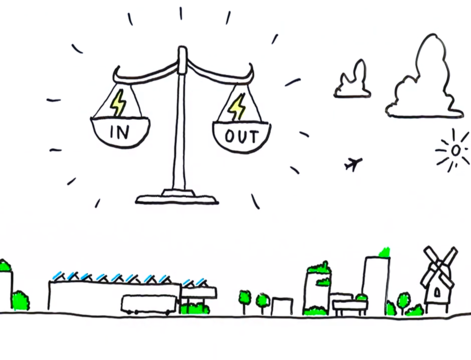EV Energy project was publicly launched during a two-day conference in Amsterdam and Flevoland from 28th - 29th March. The event was marked by a range of activities and meetings with project partners and regional stakeholders. Read in the following how the conference went, who was there, what activities were undertaken and what subjects were discussed:
The project and its goals in short: European cities decarbonisation through innovative ICT solutions
The project idea resulted from Europe’s need for intelligent solutions to integrate EVs and renewables as a way to achieve its ambitious environmental targets and yield cleaner cities throughout Europe.
To address these needs EV Energy («Electric Vehicles for City Renewable Energy Supply») aims to create a framework of effective policies and good practices in the field of electric vehicles (EVs), renewable energy and smart ICT solutions for their integration. The main project outcome is the release of powerful action plans based on different policies and good practices previously analysed and tailored to the contexts of the regions. Project outputs will surely raise awareness among policy-makers, ICT and energy managers as well as enable new opportunities in the sector.
The project consortium at the kick-off meeting


The project gathers 5 different European regions in its consortium. Partners come from Amsterdam, Barcelona, Kaunas, Roma and Stockholm. Green IT Amsterdam has taken up the role of the coordinating partner. During the kick-off meeting representatives from all of the organisations within the consortium were present and commonly discussed organisational matters and defined the project strategy and objectives. The diverse composition of the consortium ranging from public administrations to a chamber of commerce, a university and a non-profit technological organisation enriched the discussions through the variety of represented perspectives.
Workshop for Exchange of Experience
During a workshop all partners presented their regional challenges and policies aimed to tackle them. Rome started by presenting the Share’NGO car-sharing service and public policies as “Retrofit” or public grad schemes. Their presentation was followed by the Province of Flevoland who introduced the “Power Parking” project at the Lelystad Airport and Business Park - parking places covered with solar panels and integrated with bi-directional charging infrastructure. The Barcelona Chamber of Commerce further showcased different policies on electric mobility in Catalonia as the National Agreement for the Energy Transition or the PIRVEC Plan 2016-2019. The exchange workshop continued with a presentation by Kaunas University of Technology who explained the Lithuanian National Transport Development Programme 2014-2022. Stockholm's presentation on Swedish good practices and policies such as the National programme “Climate step” closed the workshop.
EV Energy consortium visits Lelystad Airport
One activity on the first day’s agenda was a study visit to the Lelystad Airport Omala Business Park. There, all partners had the chance to discover how the airport is becoming a smart-oriented area where innovative ICT solutions are implemented to adapt to environmental challenges and achieve sustainability. Lessons learnt from this study visit a will be made use of in the further course of the project and surely contribute to achieving project goals.
Conference “Social and economic Vehicle 2 Grid challenges”
The second day was marked by a public conference under the heading "Social and economic Vehicle 2 Grid challenges". Due to the diversity of speakers present at the conference project partners and attendees could get an overall understanding of how Amsterdam enables opportunities to tackle V2G challenges and how the city, companies and universities are addressing them. Our speakers ranged from Philippe Spapens, (Province of Flevoland), Robbert Monteban (Nissan) and Mark Groter (Royal HaskoningDVH), to Rick Wolbertus (Amsterdam University of Applied Science (HvA)), Auke Hoekstra (Technical Unversity Eindhoven, EV Consult, ElaadNL, Alliander) and Art vander Giessen (City of Amsterdam).
One take away message from the Conference surely was that the collaboration between the public and private sectors is one of the key elements to enhance smart policies when it comes to EVs, IT infrastructure and renewable energy. The focus given to Amsterdam was a good insight to what EV Energy will bring about.

You can find a selection of the presentations hold at our conference in our library.
Our kick-off meeting was a great start to the project and set the foundation for a successful collaboration and implementation of project objectives during the coming 4 years.
In the follow-up of the meeting project partners have taken up the work on all matters addressed during those days and now are looking forward to the next partner meeting in autumn to present their results.
